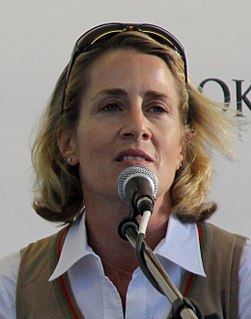A Quote by Nick Earls
One of the things that makes characters real is details. Life offers a lot of details. You just have to choose and use them wisely. When you give them to fictional people and a fictional story, their purpose and their meaning changes, so it's best to see the version in the book as fiction entirely, wherever it started out.
Related Quotes
If people ever look down upon you for crying for fictional characters, you should give them a gentle, pitying look and feel bad for them. If they've never cried for a fictional character, then they've never loved one (and what a joy that is). If they've never cried at a book, a movie, a piece of music, then they've missed one of the great pleasures life has to offer. Just because fiction does not contain things that are real doesn't mean it doesn't contain truth, and we find it through the alchemy of our tears.
When you're training as an actor, a lot of the big work you're learning is to treat fictional characters like real people. You don't have the problem of discovering a backstory with real people, but there's always a mystery which is common to both fictional and factual characters. They are never quite the person you think they are.
The devil's in the details. The way I view my job is to bring the reader into a world they otherwise could not enter and let them see it through the character's eyes. And you can only do that with detail. The details make the characters distinct from one another. If you can give them those little grace notes, those little touches, that's what makes the reader relate.
Truth and Truthfulness is an ambitious work, and its journeys into history give it a breadth unusual in these days of increased academic specialization. . . . William's book combines real history and fictional constructs to tell a revealing story that makes us reconsider the meaning of familiar concepts.
With fiction, you are creating an imaginary world. And it can be a very mechanical process. In a fictional film, you create the characters who become "real people" when facing the camera. When you stop shooting, they change their costumes and become someone else. And people tend to believe in documentary more than fiction. Even if the fiction is based on a true story, everybody will say, "Oh, they're only actors."







































